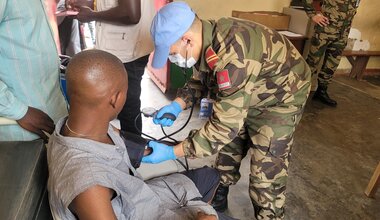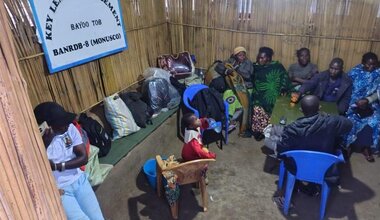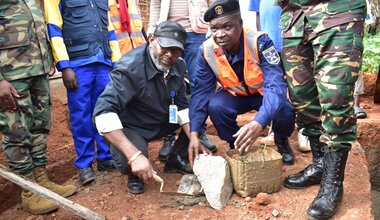Goma: Community Actors Strengthen Their Capacities to Prevent Grave Violations of Children’s Rights
In response to the deteriorating security conditions due to armed conflict in North Kivu province, particularly in the vicinity of Goma, approximately thirty stakeholders from civil society, women's associations, youth organizations, and the education sector attended a two-day capacity-building workshop on May 28-29, focusing on the protection of children's rights in crisis situations. Organized by the Child Protection Section of MONUSCO/Goma, this initiative aims to strengthen prevention, communication, monitoring, and reporting mechanisms for grave violations, in line with the "Do No Harm" principle.
This workshop comes at a critical time. Since January 2025, violence in Goma has escalated dramatically, encompassing fatal attacks and injuries, sexual violence including rape, child recruitment by armed groups, and deliberate strikes against schools, hospitals, and humanitarian facilities. Between February and April 2025, over 300 serious violations of children's rights were documented.
During the two-day workshop, participants from various neighborhoods of Goma deepened their understanding of children's rights, human rights, gender, and national and international legal protection mechanisms.
“Of course, some of the content was already familiar to us, but we also learned new concepts, especially regarding legal instruments. It helped us realize that the protection of rights isn’t just about children—it concerns human beings in general,” said Pascal M., a member of a human rights organization.
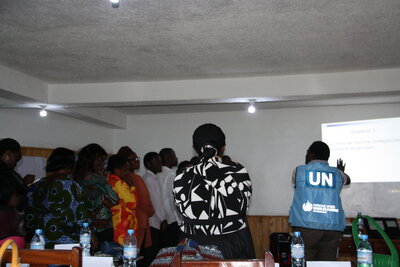
The session also served to dispel several misconceptions about the responsibilities of the government during times of conflict. “I used to think that in areas controlled by armed groups, the state had no say. However, I learned that even there, it remains responsible for upholding human rights,” stated Marie G., a member of a women’s association from the Karisimbi commune.
Beyond the information provided, the workshop served as a call to action for personal and community commitment. Participants expressed their intention to share what they had learned with members of their respective communities and to act as local relays for child protection. “What we learned must be shared. We now understand the difference between a human rights violation and an abuse. It is the state and competent institutions that enforce human rights. We hope this kind of training will be extended to others,” emphasized Joseph, a participant.
Capacity-building is not limited to adults. Special attention is also given to children, who are encouraged to develop self-protection mechanisms in the face of increasing risks linked to conflict.
MONUSCO, in collaboration with CAFED (Collective of Women’s Associations for Development), supervised all stages of the workshop, ensuring a coherent structure for the workshop that encouraged participation by those who attended. Emphasis was placed on strengthening the monitoring and reporting system to reflect the evolving context of the security crisis in the region.
The impact of these workshops will be truly felt if the recommendations are followed by concrete actions, especially regarding community outreach. In this regard, participants called for logistical and financial support to enable local organizations—often lacking resources—to pass on the knowledge they acquired.
“We are asking MONUSCO to continue supporting local initiatives. There are many human rights organizations that want to take action but lack the means to hold meetings. And we urge our colleagues who were unable to attend this workshop to be present and available during the community feedback sessions,” recommended Julienne Masoka.
Given the extent of violations and the heightened vulnerability of children during conflict, prevention must involve raising awareness across all social groups, including community leaders, families, and the children themselves. This type of workshop, in addition to strengthening the technical capacities of protection actors, serves as a reminder that respecting children's rights is a shared responsibility.
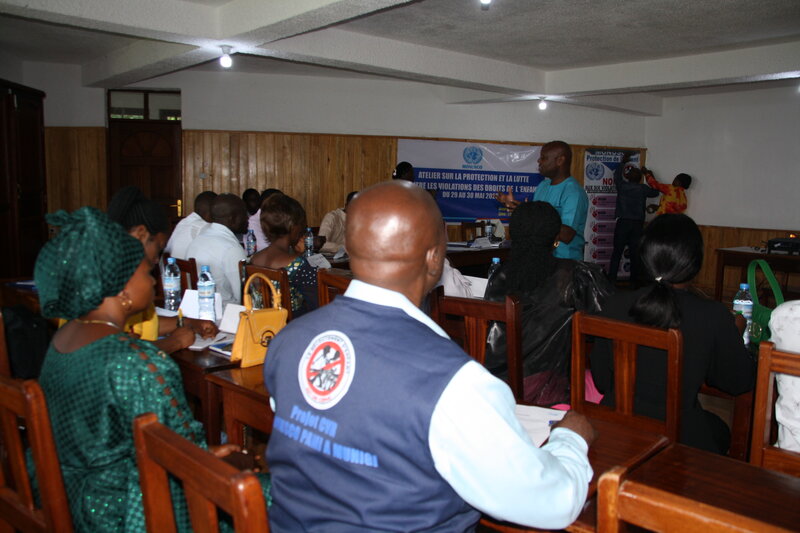
 UN
UN United Nations Peacekeeping
United Nations Peacekeeping




